Gary Moore: the lost interview - in-depth with a guitar legend
Moore's thoughts on blues pretenders, Peter Green and "athletic" guitarists
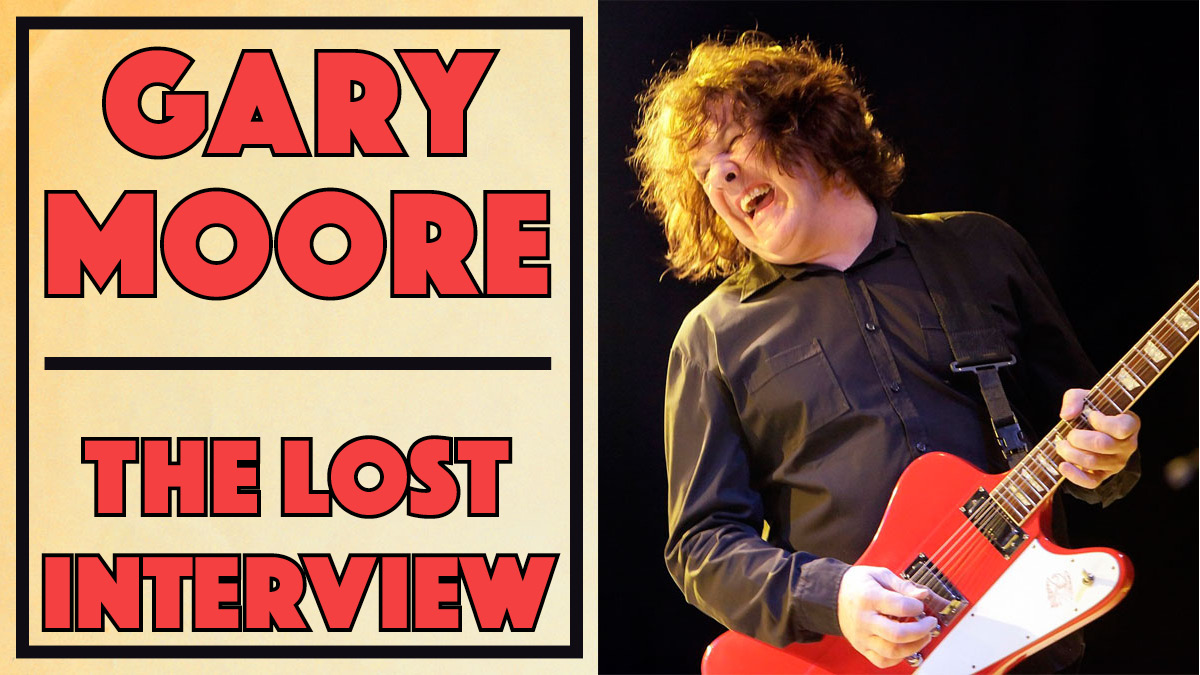
Introduction
It's hard to believe that February marked five years since Gary Moore’s death. We hear from the man himself in a previously unpublished interview that was originally carried out in 1995, prior to the release of the album Blues For Greeny.
The album was Gary’s blues salute to his mentor and friend, Peter Green. David Mead - deputy editor of Guitarist - remembers the circumstances under which the interview was carried out...
“Gary’s management contacted me and asked me if I would write the liner notes for the Blues For Greeny album and, of course, I immediately said, ‘Yes.’ I had interviewed Gary in the past and we subsequently enjoyed a sort of nodding acquaintance and so we arranged to meet for lunch in a hotel in London’s Holland Park in order to discuss my contribution to the album cover.
I was sitting down beside John Mayall and I tried to sound really cool... I just blushed; my face was burning, I can remember that really well
“On the day, Gary was very relaxed - it was far from being a formal interview, more like a conversation. He said that he wanted the liner notes to be autobiographical and tell the story of his love for Peter Green’s playing that had started way back when Peter replaced Eric Clapton in John Mayall’s Bluesbreakers.
“As it turned out, there wasn’t an enormous amount of space on the album cover and so very little of our exchange that day ended up being used. But I had let the cassette tape roll and we ended up talking for ages, the subject matter veering away from Gary’s historical recollections to his overview of the state of the guitar world in the mid-1990s.
“As such, I believe it represents a fascinating snapshot in time of a legendary player, who was rediscovering his enthusiasm for a purer form of the blues. We begin when Gary was just 14 years old, seeing Peter Green play in a Belfast club…”
“The first time I saw Peter Green play was at the Club Rado, which was a very rough club in Belfast,” says Gary, “and at that time he’d just replaced Eric in the Bluesbreakers. I’d gone up there to sort of hang out and see if I could meet this guy Peter Green, because I’d read about him and everything.
“They were really miserable because they were pissed about the equipment that had been rented for them and nobody was saying anything and I was sitting down beside John Mayall and I tried to sound really cool, I said, ‘Is Greeny here yet?’ and he said, ‘No…’ and I just blushed; my face was burning, I can remember that really well.”
Don't Miss
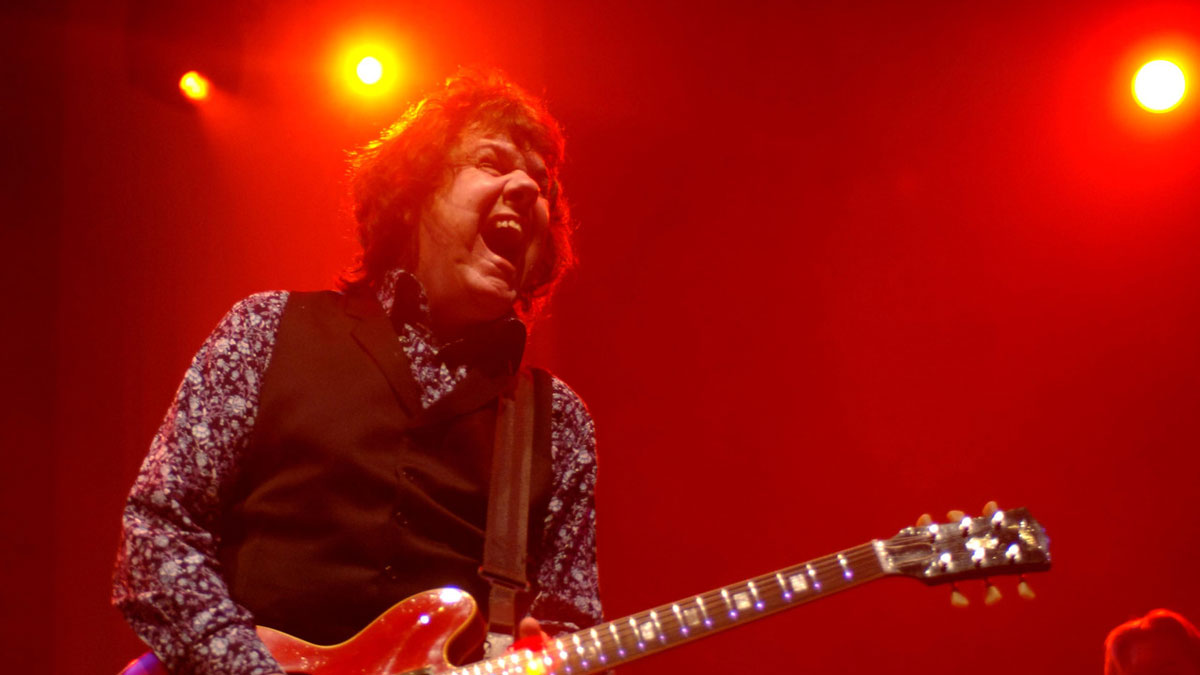
Peter and Selmer
“Peter had a rented Selmer amplifier. In those days, Selmer amplifiers were not regarded as being very cool, but he came on and plugged straight into this amp, played the first lick of All Your Love and just devastated everybody because he had the most incredible tone.
“I’d never heard anyone reach down that deep with their guitar tone and really make the thing resonate and I was just blown away. He did The Stumble, Another Kind Of Love and all those things from A Hard Road.
He was such a charismatic player, so much larger than life when he played. You didn’t know where it was coming from
“The next time I saw him play was in the very early days of Fleetwood Mac with Jeremy Spencer, Mick Fleetwood, John McVie and himself. That was the band and, again, it was the same club. He came out on stage this time - he had a smaller amplifier, Selmer again - and he played absolutely amazingly.
“He was such a charismatic player, so much larger than life when he played, just pulling all this stuff out. You didn’t know where it was coming from. It was so soulful and so beautiful and, again, that sound. It was just so clean, and don’t forget, in those days, they didn’t mic instruments up. That was the sound coming off the stage, but so beautifully balanced.”
After that, Gary moved to Dublin and joined the fabled Skid Row. Still only 15 years of age, he soon caught up with Peter once again.
“I saw Fleetwood Mac play yet again and, by this time, they had Danny Kirwan in the band and had hits with Albatross and Man Of The World. Peter was using Orange amps and playing a bit differently - a little bit more distorted, a little bit more sustain. He had this great big Orange reverb unit as well.
“They did Albatross and all the stuff and absolutely blew me away. It was the first time I’d heard two guitars play in harmony. That was a big thing as well, because up until then I’d been listening to Albatross and I’d figured out how to play the second verse by bending two strings at once.
Peter came out of his dressing room and said, ‘I really like your playing, come back to the hotel and let’s have a talk
“At the time, I could bend them in harmony. I thought that’s what he was doing. I thought, ‘That’s so clever, but it’s really hard to do it, it’s so controlled.’ But, of course, when they came on stage they suddenly split into stereo and I went, ‘Oh fucking hell, they’re both playing it!’
“The following year they came to the National Stadium in Dublin. I was still only 16 and we opened for them. This guy Pat Egan, he was sort of compering the show, came up to me after our set and said, ‘Peter Green wants to meet you.’ I was totally blown away because I’d always wanted to meet him and I was really nervous.
“Peter came out of his dressing room and said, ‘I really like your playing, come back to the hotel and let’s have a talk.’ We just jammed for hours and I left really, really late. After that, he spoke to his manager at the time, Clifford Davis, and persuaded him to help get us to England.
“He signed us into a management contract and got involved with the record deal and everything from thereon. We moved to London - this was 1970, I guess - and one day, I went round Peter’s house and he said, ‘Let’s go for a drive’ and we were driving along and he said, ‘I’m leaving the band, I’ve had enough.’”
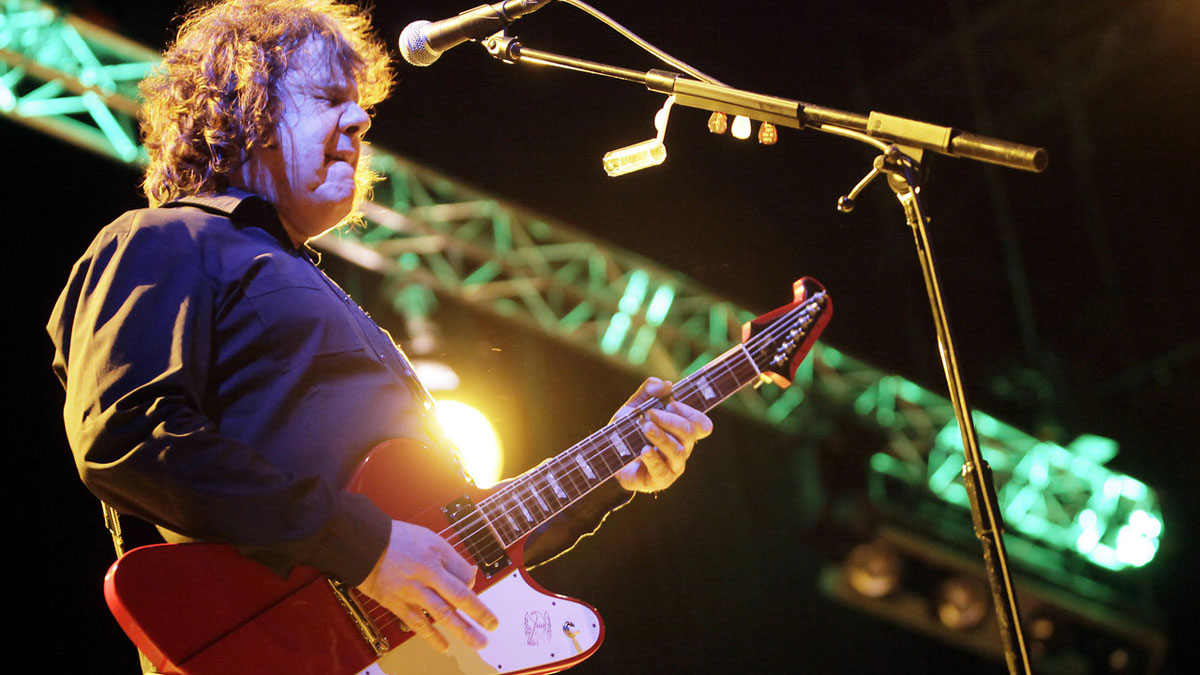
The inimitable Green
Thus began Peter Green’s well-documented descent into virtual obscurity, but the friendship between the two players had left an indelible mark on Gary.
“An amazing player. I just wish he’d never stopped really, because he was very much one of the people from that era who had something to say. Then you had Eric and Jeff, Jimmy and Peter and not much else, in my eyes, anyway.
“There were other guitarists from that era who were very highly rated, but, to me, they didn’t have anything compared to someone like Peter. So when he left the scene, he took a big part of that whole thing with him, as far as I’m concerned.
If young guitarists could listen to that, they would learn so much about where they’re going wrong - Green’s the opposite end of the scale
“There’s a whole dimension that’s been missing from British guitar playing since then. It was approached from a very British point of view, even though he was emulating BB King, Freddie King, people like that, but he did it his own way and he kind of made that his own: his own voice, which is the hardest thing to do, really.
“There were other guitarists, obviously - after that you had Mick Taylor and everything - but Peter had the toughest job: to walk in after that Blues Breakers album and to shine the way he did was an amazing achievement and he got a lot of respect for that.
“When you listen to Peter’s playing - the kind of sound that he went for and everything - it wasn’t in any way fashionable. It wasn’t such a radical departure as Eric’s sound. Eric used a lot more distortion and everything. Peter’s sound has not dated, it’s become a classic in its own right and today, when you listen to it, it’s still as valid as ever.
“And it teaches people. I think if young guitarists could listen to that, they would learn so much about where they’re going wrong - because he’s the opposite end of the scale to what’s going on today.”
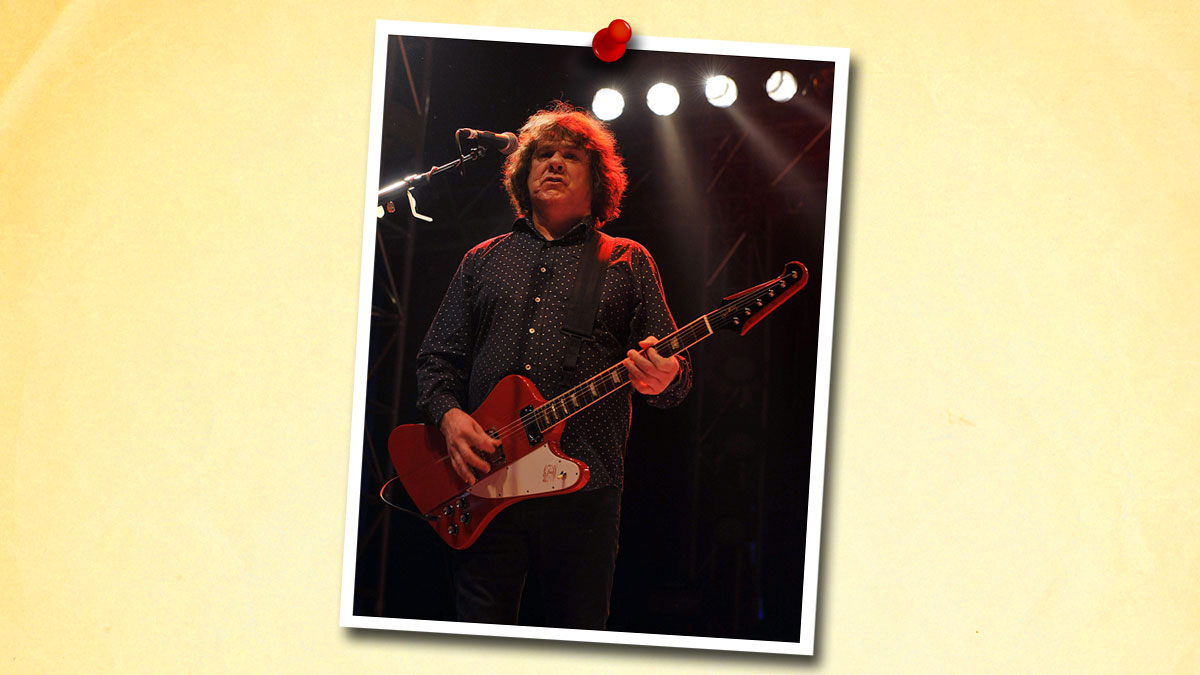
Listening test
Gary had very strong opinions about the direction that guitar playing was headed in the mid-1990s.
“I think that a lot of people are going so wrong by analysing music too much and learning from a totally different perspective from the way I learned. I mean, I just learned by listening to people. People I learned from learned by listening to people.
I just learned by listening to people. People I learned from learned by listening to people
“The generation above me was Eric and Jeff and all those guys, so there wasn’t anything like the information that is available today. These guitar institutes and things like that, I think they take away people’s identity and they’re actually encouraging a lot of people to play who are not naturally good players anyway, but they’re telling people that anyone can learn to play.
“And anyone can probably learn to play, but that doesn’t make them a good player and, at the end of the day, they’re turning out a generic generation of guitarists who are coming out the other end of this sort of conveyer belt sounding pretty much the same. I mean, I can’t name one of these people who amount to anything special. Who’s actually become a voice? Who’s actually had anything of any real depth to say? Who has written good music?
“To listen to these guys talk, you’d think they were the most amazing musicians on Earth and you hear what they come up with and it just doesn’t follow through for me. In fact, they do kind of play like they talk, because they talk too much and they play too much and they just kind of miss the point. It’s not their fault. You’re just overloaded with information: ‘How shall I learn? Which guitar should I play? Which pedal should I use?’ And everyone’s bombarding you.”
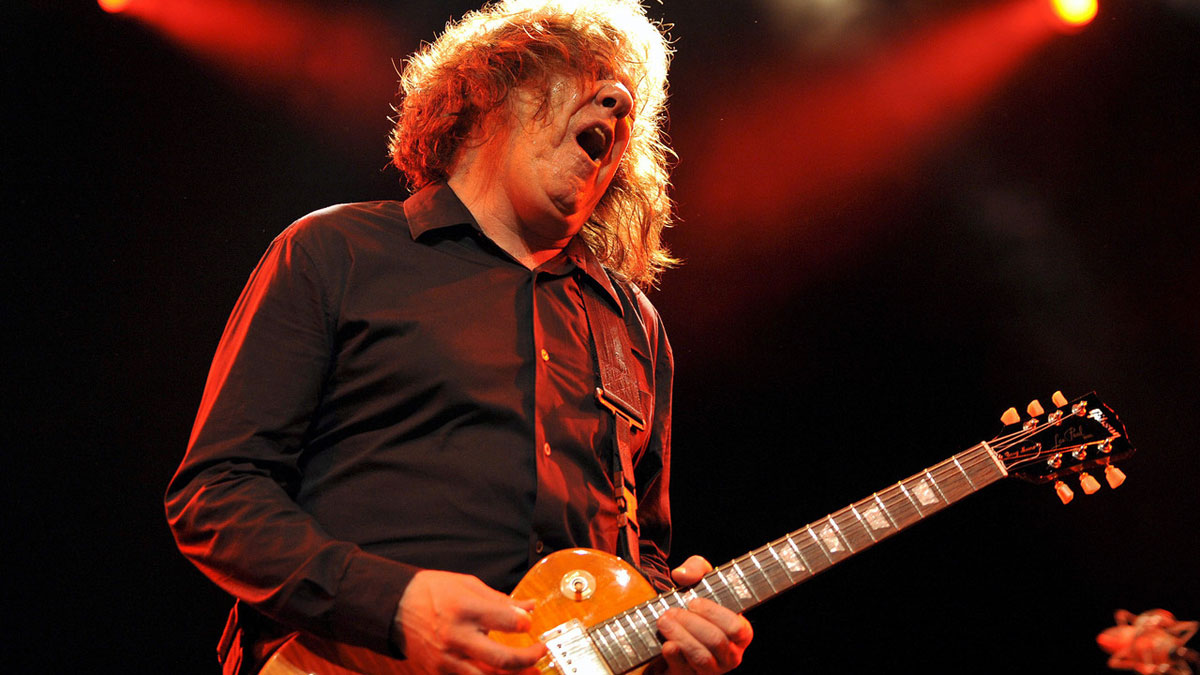
Blues blues
In the years leading up to our interview, there had been an obsession with speed, with technique appearing to obliterate content in some cases.
“I think it’s going away a little bit, but I’m probably not the right person to ask because I was as guilty of that as anybody, in my own way, in the 70s, playing all that fusion stuff. But that’s why I can see it now because I’ve been through that.
We’re losing the whole point: music is not to impress people, music has to stand up on its own and guitar solos are nothing to do with it.
“I can see a lot of these young guys are going nowhere with that whole attitude, it’s so wrong. They’re more interested in impressing each other than playing music. We’re losing the whole point: music is not to impress people, music has to stand up on its own and guitar solos are nothing to do with it.
“If you hear a great song and you hear a really great guitar solo, that’s a nice embellishment. But they’re just so into the athletic side, the competitive side, and they’re missing the point. But that’s fine, because at least there’s room for people who do want to play music.”
Gary was also aware of the influence his return to the blues was having on other players.
“When I made Still Got The Blues, you had all these guys who’d never heard of blues going out to promote blues albums - these LA guys. It was quite laughable. From my point of view, it was a complete turnaround because there I was, setting a trend and influencing the wrong people to play the wrong music for them.
It was arrogant for me to think I could go and make a blues album as simply as that
“It was arrogant for me to think I could go and make a blues album as simply as that, because I hadn’t played that music professionally for so long. It was very successful, but the way I did it was totally wrong: ‘Oh, I’m a rock guitarist and I can play the blues…’ and these guys followed suit and they were even further removed from it because they had no background of the blues. At least I’d grown up with it. I knew something about it, but these guys were like widdly-widdly playing that Albert King stuff.
“For me, making this record was like going back and relearning everything that I’d forgotten over the past few years. I know I did a blues album in 1990, but this was going back to where I started off.
“It’s given me another chance to get back to that point and not fuck it up this time because I think, in many ways, I did fuck it up, musically speaking. I went off on a tangent and got too far away from the whole truth of what we were trying to do.
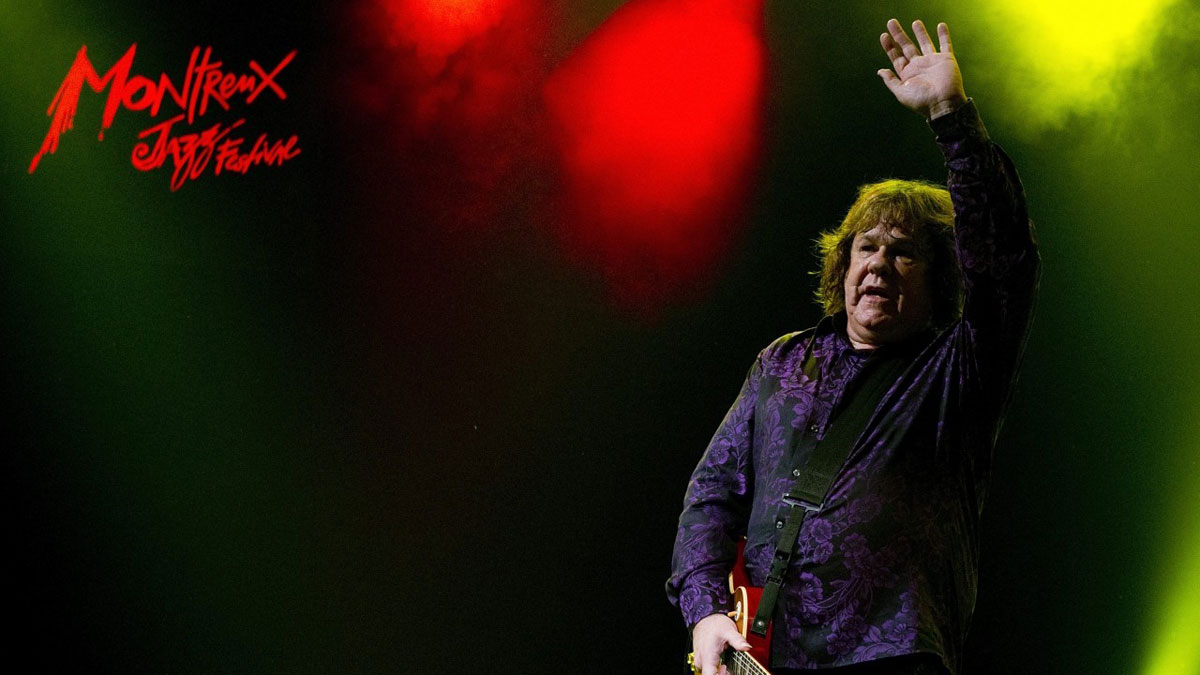
Revisionist
“This record sounds like the rehearsals for what Still Got The Blues became. That’s what it was like; that’s how we played together and it’s nice to be able to get that sound down on record. It’s given me another chance, really.
This music is so f***ing hard to play and people don’t realise; they think they have to just pick up a guitar and play three chords and that’s the blues
“People will disagree and say, ‘No, After Hours and Still Got The Blues were blues albums,’ but they weren’t really, in all honesty. They were still rock albums because of the sound and the production.
“This, to me, is my first real blues album because it’s a blues record: it’s stripped right down, it’s gone back to what the blues is about for me and I’m playing in a style that I can play.
“I’m not trying to be anybody that I’m not. I’m not trying to play in a way that is very alien to me. It’s been like a revision course for me. And this music is so fucking hard to play and people don’t realise; they think they have to just pick up a guitar and play three chords and that’s the blues.
“It’s a lot more than people realise - constantly refining, taking away all the stuff you don’t need until all that’s left is the bare bones and what’s there is totally necessary, and that’s the hardest way to play.
“It’s just very honest. It’s like you’re almost in the room, I feel, anyway. You can hear there’s lots of mistakes and everything - really fucking sloppy playing for me, especially on a couple of tracks, but I didn’t want to change it. I didn’t want to drop things in and fix it, I wanted people to hear it the way it was done.
It’s just very honest. It’s like you’re almost in the room, I feel, anyway. You can hear there’s lots of mistakes and everything
“I think it’s a lot more honest to do that. Anybody can fix things in the studio, but if you can you get a performance out in one go, that means something. All the records I like have got mistakes in them, anyway.”
At the end of our conversation, Gary hinted that there might be some unreleased material, which, 20 years later, still hasn’t seen the light of day.
“I also did a sort of unplugged version of about eight songs as well, a whole load of acoustic versions for B-sides and stuff. We did Need Your Love So Bad acoustically and The World Keeps Turning from the first Fleetwood Mac album. It was the first acoustic one Peter did. So I’ve got a load of stuff and it’s actually gone straight to DAT so you don’t need to mix it or anything.
“It’s very different from anything I’ve done before, it’s much more a vocal performance, because you’re just sort of strumming most of the time. So we just banged about eight different songs out in a couple of hours and I’ve got all those at home.”

